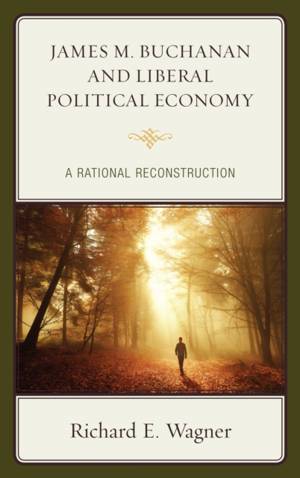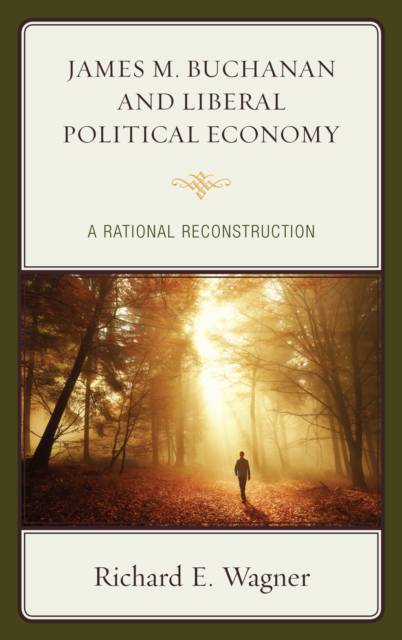
- Afhalen na 1 uur in een winkel met voorraad
- Gratis thuislevering in België vanaf € 30
- Ruim aanbod met 7 miljoen producten
- Afhalen na 1 uur in een winkel met voorraad
- Gratis thuislevering in België vanaf € 30
- Ruim aanbod met 7 miljoen producten
Zoeken
James M. Buchanan and Liberal Political Economy
A Rational Reconstruction
Richard E Wagner
Hardcover | Engels
€ 174,95
+ 349 punten
Uitvoering
Omschrijving
This book examines the contemporary meaning and significance of James M. Buchanan's body of work, exploring the impact of his contributions on scholars today. Buchanan's prolific scholarship made strong contact with law, ethics, and political science, and offers insights for economists and scholars across the humanities.
Specificaties
Betrokkenen
- Auteur(s):
- Uitgeverij:
Inhoud
- Aantal bladzijden:
- 220
- Taal:
- Engels
Eigenschappen
- Productcode (EAN):
- 9781498539067
- Verschijningsdatum:
- 23/05/2017
- Uitvoering:
- Hardcover
- Formaat:
- Genaaid
- Afmetingen:
- 152 mm x 231 mm
- Gewicht:
- 498 g

Alleen bij Standaard Boekhandel
+ 349 punten op je klantenkaart van Standaard Boekhandel
Beoordelingen
We publiceren alleen reviews die voldoen aan de voorwaarden voor reviews. Bekijk onze voorwaarden voor reviews.











